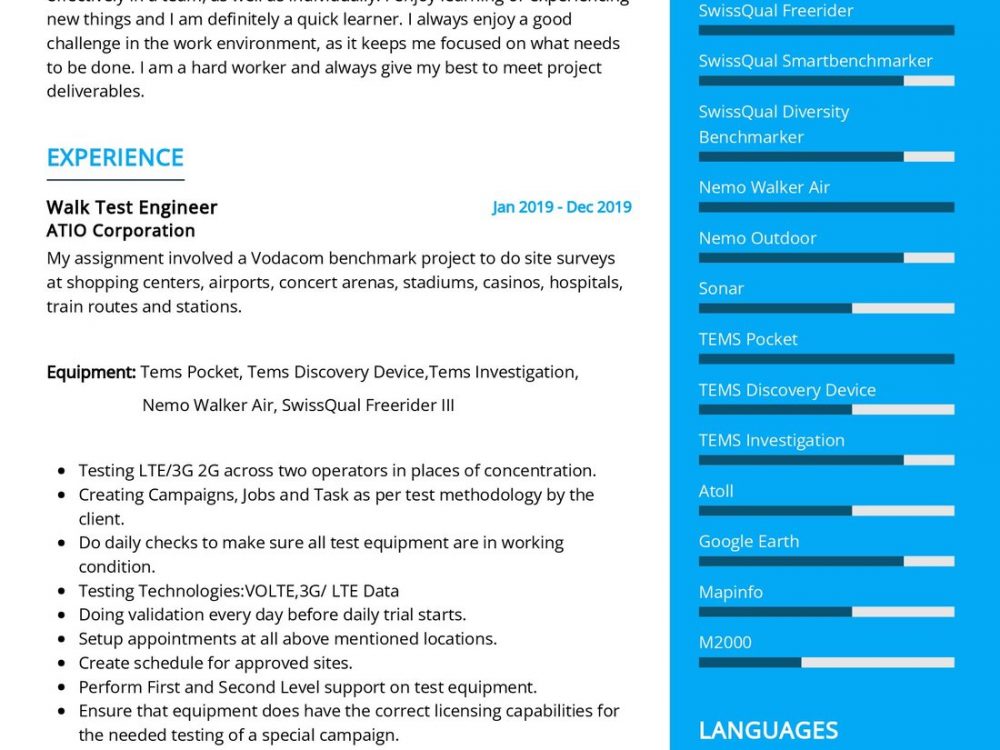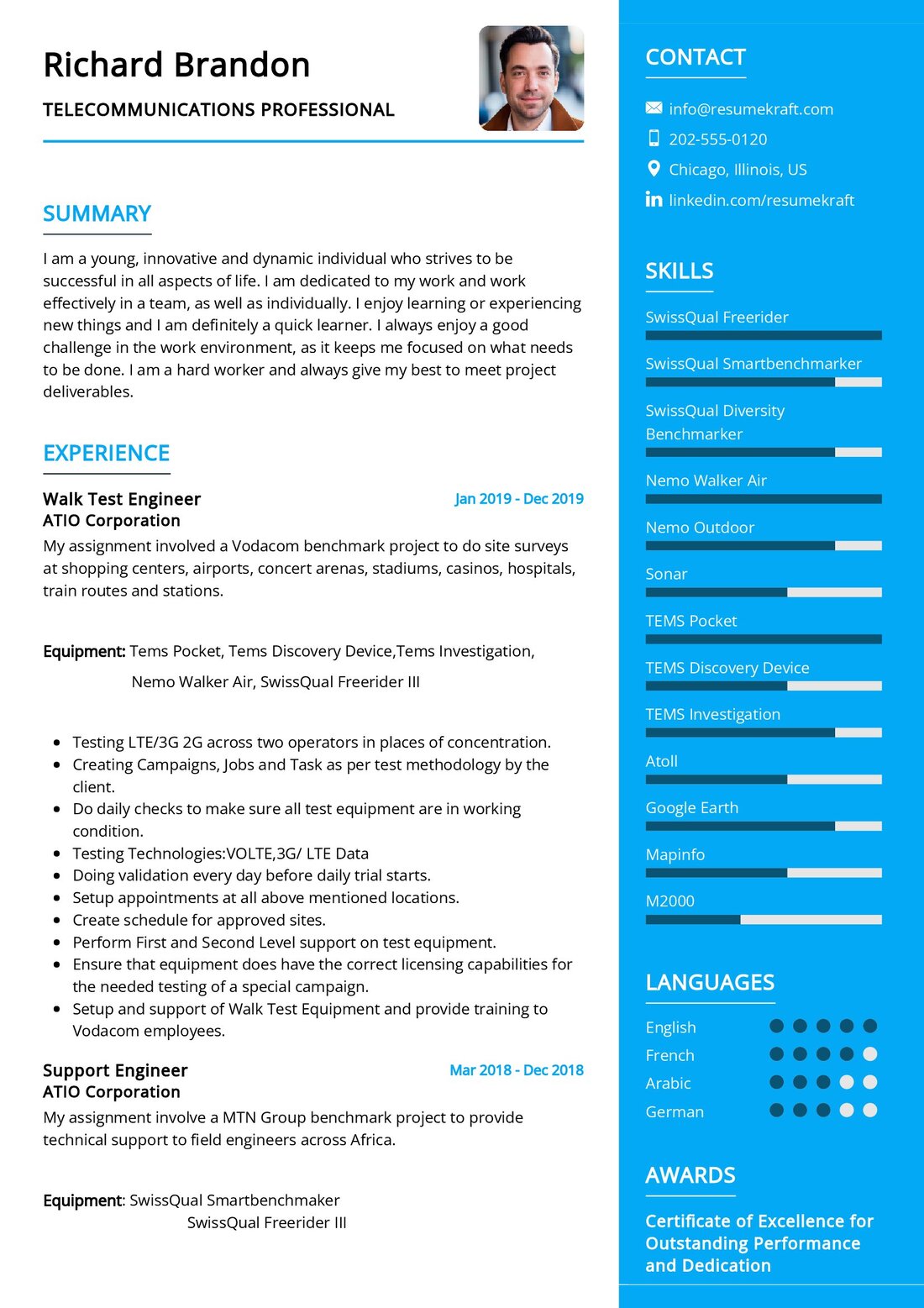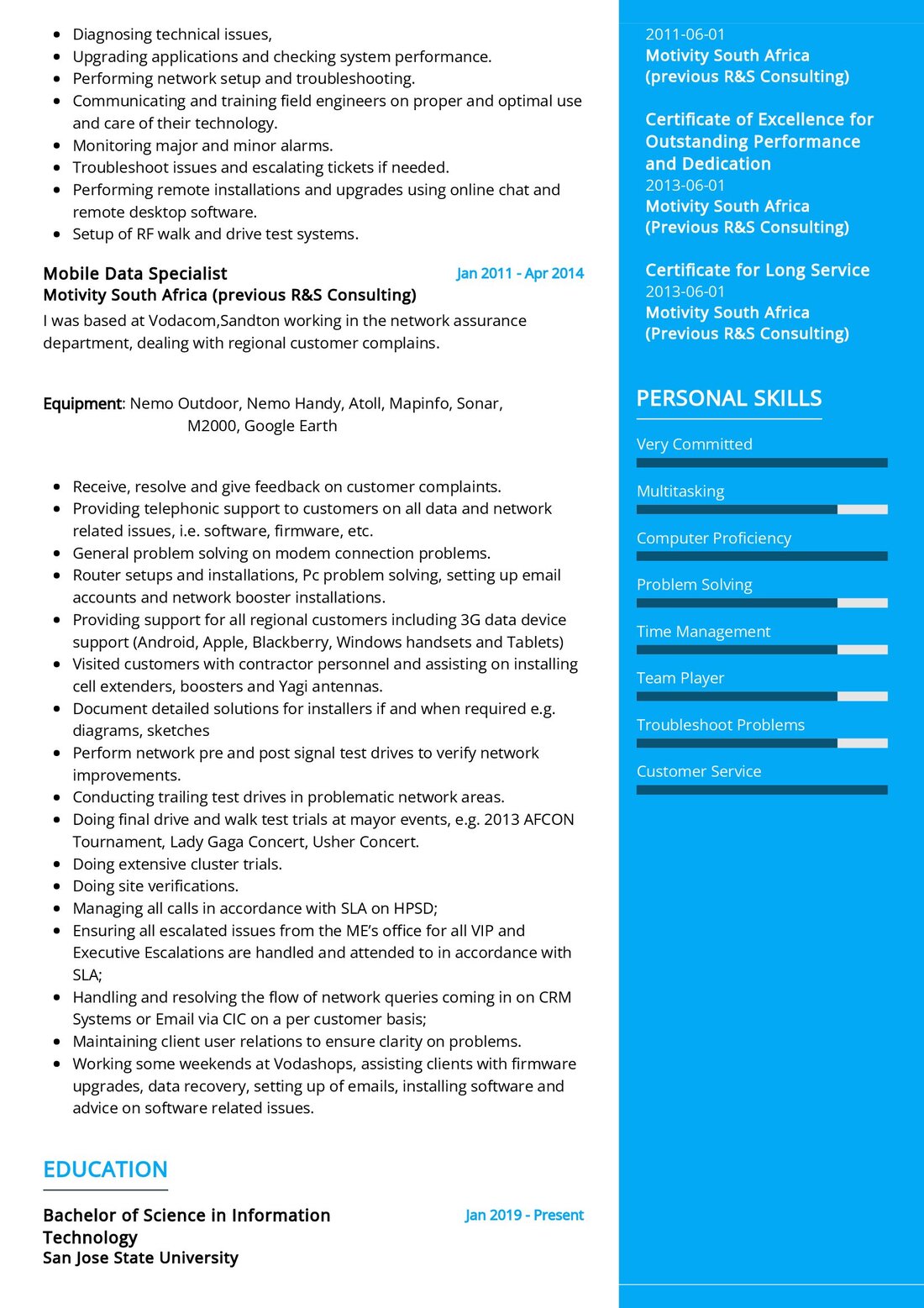The Role of a Telecommunications Professional
In the ever-evolving landscape of telecommunications, the role of a Telecommunications Professional has become integral to the seamless functioning of modern communication networks. This position demands a unique blend of technical expertise and strategic vision, making it a key player in the success of telecommunications initiatives. Let’s delve into the multifaceted responsibilities and requirements of a Telecommunications Professional, exploring the skills and experiences that define this crucial role.
Telecommunications Professional Job Requirements
Embarking on a career as a Telecommunications Professional requires meeting specific requirements to excel in this dynamic field. The journey involves continuous learning and hands-on experience. Here are the prerequisites one needs to fulfill to step into the role:
- A Bachelor’s or Master’s degree in Telecommunications, Electrical Engineering, or a related field, showcasing a strong foundation in the technical domain.
- Proficient knowledge of telecommunication systems, protocols, and emerging technologies, demonstrating a deep understanding of the industry.
- Hands-on experience in the design, implementation, and maintenance of telecommunications networks, showcasing a trajectory of increasing responsibility.
- Leadership and project management skills, honed through experiences and possibly through courses and certifications.
- Proficiency in network optimization and troubleshooting, skills vital in ensuring the reliability and efficiency of telecommunications systems.
- Adaptability to stay abreast of evolving technologies in the telecommunications sector, a trait developed through continuous learning.
Additional certifications in relevant telecommunications technologies can enhance your profile in the competitive job market.
Responsibilities of a Telecommunications Professional
The role of a Telecommunications Professional is diverse, encompassing various responsibilities that contribute to the efficiency and effectiveness of communication networks. Let’s uncover the core responsibilities that define this role:
- Designing and implementing telecommunications infrastructure, ensuring optimal performance and reliability.
- Optimizing network configurations to enhance efficiency and reduce downtime, contributing to seamless communication processes.
- Leading telecommunications projects, overseeing planning, execution, and timely delivery of projects.
- Collaborating with cross-functional teams to integrate new technologies and improve existing telecommunications systems.
- Conducting regular audits to ensure compliance with industry regulations and standards, safeguarding data integrity and security.
- Staying updated with emerging technologies and industry trends, guiding the team towards adopting best practices and innovative solutions.
Each responsibility brings unique challenges and opportunities for learning, shaping you into a telecommunications leader.
Telecommunications Professional Resume Writing Tips
Crafting a resume that stands out in the competitive job market is essential for success as a Telecommunications Professional. Here are some tips to help you create an impactful resume:
- Highlight leadership roles and instances where you have led successful telecommunications projects.
- Detail specific projects or initiatives you have spearheaded, illustrating their impact on communication network efficiency.
- Include quantifiable achievements to showcase your contributions, using metrics to highlight your successes.
- List relevant certifications and training, emphasizing your commitment to continuous learning in the telecommunications field.
- Customize your resume for each application, aligning your skills and experiences with the specific job requirements.
Each tip is a valuable addition, helping you craft a resume that effectively communicates your expertise as a Telecommunications Professional.
Telecommunications Professional Resume Summary Examples
Your resume summary is the opening statement of your professional journey, providing a snapshot of your skills and experiences. Here are some examples to inspire you:
- “Results-oriented Telecommunications Professional with over a decade of experience, adept at optimizing network performance and leading successful communication infrastructure projects.”
- “Experienced Telecommunications Leader specializing in network design and implementation, with a proven track record of enhancing efficiency and reliability in communication systems.”
- “Innovative Telecommunications Professional with expertise in emerging technologies, dedicated to leading teams and implementing cutting-edge solutions for seamless communication.”
Each summary is a window into your telecommunications career, offering a glimpse of your journey and strengths as a professional in the field.
Create a Strong Experience Section for Your Telecommunications Professional Resume
Your experience section is the core of your resume, showcasing the rich experiences you have gathered in the telecommunications field. Here are some examples to guide you:
- “Led a team in the successful implementation of a fiber-optic network, improving communication speed by 30%.”
- “Pioneered the integration of 5G technology, enhancing network capabilities and reducing latency for improved user experience.”
- “Managed the upgrade of a multinational company’s communication infrastructure, ensuring uninterrupted connectivity across global offices.”
Each experience narrates a chapter in your telecommunications career, demonstrating your ability to tackle challenges and drive successful outcomes.
Education Section for Your Telecommunications Professional Resume
Your educational background serves as the foundation for your career. List your educational milestones in a way that showcases your expertise and commitment to learning:
- Master of Science in Telecommunications Engineering, XYZ University, a journey of in-depth learning and specialization, 2015.
- Bachelor of Engineering in Electrical Engineering, ABC University, the foundation stone of your telecommunications career, 2012.
- Certified Telecommunications Professional (CTP), recognition of your skills and knowledge in the telecommunications industry, 2016.
Each educational qualification is a stepping stone, leading you to success in your telecommunications career.
Telecommunications Professional Skills for Your Resume
Your skill set is a toolbox equipped with a diverse range of tools honed over the years. Showcase your abilities, both innate and acquired, with the essential skills for a Telecommunications Professional:
Soft Skills:
- Leadership and team management, steering teams towards successful telecommunications projects.
- Communication and interpersonal skills, conveying thoughts effectively and building strong professional relationships.
- Problem-solving abilities, finding solutions in challenging situations for uninterrupted communication.
- Attention to detail, ensuring meticulous planning and execution of telecommunications initiatives.
- Adaptability and resilience, bouncing back and adapting to evolving technologies and challenges.
Hard Skills:
- Expertise in telecommunications protocols, a deep understanding of communication network intricacies.
- Proficiency in network optimization and troubleshooting, ensuring reliable and efficient communication systems.
- Project management, overseeing planning, execution, and timely delivery of telecommunications projects.
- Knowledge of emerging telecommunications technologies, guiding teams towards innovation and best practices.
Each skill is a tool aiding you in providing exceptional communication services and leading your team effectively.
Common Mistakes to Avoid When Writing a Telecommunications Professional Resume
Avoiding common pitfalls in resume writing is crucial for success in the job market. Here are mistakes to steer clear of when crafting your Telecommunications Professional resume:
- Using a generic resume for all applications, failing to showcase your unique fit for each role.
- Focusing on tasks rather than achievements, presenting a resume that lacks depth and impact.
- Overlooking the importance of a cover letter, missing an opportunity to connect personally with potential employers.
- Overloading your resume with technical jargon, potentially obscuring your true value as a professional.
- Neglecting to proofread, risking a negative impression due to errors in your professional image.
Avoid these mistakes to craft a resume that is both authentic and compelling, effectively showcasing your value as a Telecommunications Professional.
Key Takeaways for Your Telecommunications Professional Resume
As we conclude this comprehensive guide, remember the key points while crafting your Telecommunications Professional resume:
- Emphasize leadership experiences, showcasing successful projects and teams led.
- Highlight technical proficiency, emphasizing expertise in telecommunications protocols and network optimization.
- Detail strategic initiatives, illustrating your innovative approach to improving communication systems.
- Include a section on continuous learning, showcasing relevant certifications and courses undertaken in the telecommunications field.
Finally, feel free to utilize resources like AI Resume Builder, Resume Design, Resume Samples, Resume Examples, Resume Skills, Resume Help, Resume Synonyms, and Job Responsibilities to create a standout application and prepare for the Telecommunications Professional job interview.
Armed with these insights and tips, you are now ready to craft a resume that is a true reflection of your journey, your skills, and your aspirations. Remember, your resume is not just a document; it is a canvas where you paint your career story, a story of growth, learning, and leadership. Best of luck!



